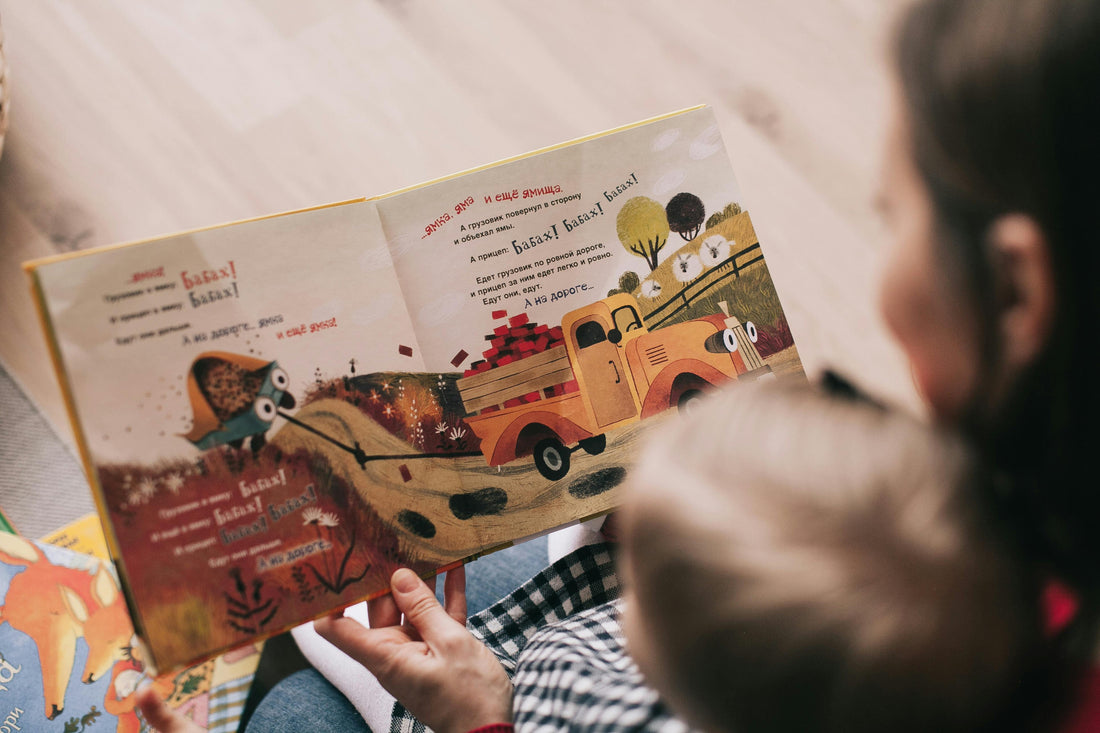
4 Activities to Boost Your Child's Vocabulary Learning
Share
The Power of Language for Your Children
Language opens a world of communication, understanding and expression for children. In the early years, it helps them start to express their thoughts and emotions and connect with others. The more words your kid knows, the better they can convey their needs. A rich vocabulary also helps build reading comprehension.
When children understand the words they read, they are more likely to enjoy reading, which leads to them wanting to do it more often. So given the importance of language, let's explore some fun activities that can help expand the vocabulary of your kids!
#1: Spoken or Interactive Word Games

Word games are a fantastic way to have fun and learn new vocabulary at the same time. Games like Scrabble, Boggle are great for older kids l, while our interactive memory game, Discover Animal Sounds can help young kids who are just starting out learn while listening.
But you don't need to spend money to build vocabulary, you can also create your own spoken word games to pass time with the family. For example, you could take turns thinking of words that start with the last letter of the previous word, or practice finding synonyms and antonyms of words or objects you spy around the house.
Simple activities like this can expand vocabulary and allow children to build understanding of the environment around them.
#2: Reading Together

Reading together can be a fun way to spend quality time and improve language skills. You can choose a book that your child enjoys or pick a new one that you think they might like.
As you read, try to involve your kids in the story by asking questions and encouraging them to predict what might happen next. If age appropriate books aren't available, you can also try taking turns describing parts of images or selecting specific words your kid can read to start a discussion.
Get creative with it and your kids will too!
#3: Creative Writing and Storytelling

For older kids, you might want to spark their creativity by encouraging them to write their own short stories. Start by brainstorming fun ideas together—maybe a memorable family vacation, a day in their life or an imaginative tale based on one of their interests.
If they're not sure where to start, help them create a setting and characters then let their imagination take it from there. Help them to use descriptive language and (for the more advanced writers) teach them that a good story has a beginning, middle and end.
You don't need to do it all at once.
This activity can stretch over days or weeks. Working with your kid to build their story bit by bit can help them understand the value of ongoing focus and create a regular activity that they look forward to.
If they want to share their masterpiece with the family,
set aside a special reading time and celebrate their hard work.
#4: Create a Vocabulary Challenge

Specific challenges can be a great way to expand vocabulary. Try setting a goal for each family member to learn a certain number of new words each week.
If you're trying to encourage your kids to learn additional languages, this exercise can be a good introduction to languages like French or Spanish. Resources like a dictionary, new book, or word-a-day calendar can come in handy if you're stuck for words. If you own a set of Tokidos PlayCubes, you can also have the kids play learning games in French to increase their language exposure.
At the end of the week, you can share the new words you’ve learned with one another. Play a quick game where the words are used in sentences or create a silly story using as many new words as possible.
Simple activities like this will encourage your kids to expand their vocabulary and use new words in context.
How to Maintain Consistency and Keep the Vocabulary Learning Fun

We believe learning should be an adventure.
Working engaging activities like word games, reading, creative writing and vocabulary challenges into your days can have a powerful, compounding effect on how your children can interact with you and their world.
You can build consistency in your approach to language in learning by designating specific times to play with words or rewarding your kids for participation.
Little tokens like stickers or treats can help incentivize kids to embrace mastering their language skills.
Consistency is important, but always try to make the process enjoyable. This way your kid will develop a love for learning they can carry with them throughout life.
Want to learn more about building vocabulary and language learning?
For more in-depth information on language learning, check out the Linguistic Society of America, Ethnologue, and Omniglot for information on various languages.
Podcasts like Lingthusiasm offer fun, engaging content or you can also check online platforms like Khan Academy which provide structured courses on reading and language.
